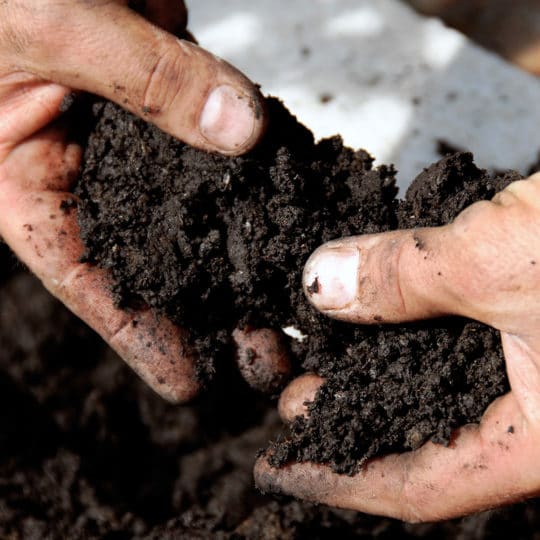Plant Available Silicon
Using Natural DE to Improve Plant Tissue, Plant Structure & More

Silicon (Si) exists in all plants grown in soil, making up 0.1% to 10% of plant tissue. This nutrient enhances the strength and rigidity of plants, which reduces lodging and pest attacks while increasing the light-receiving posture of the plant, allowing the plant to photosynthesize further and grow more. Silicon found in the culms, leaves, and hulls decreases transpiration from the cuticle, which increases resistance to severe temperatures, radiation, UV, and drought stress. Oppositely, a lack of silicon can even result in poor growth of crops, if not death, that has high silicon content, like rice and sugarcane.
Plants can only absorb Si in the form of soluble monosilic acid, a non-charged molecule, which is known as plant-available silicon (PAS). Natural diatomaceous earth is a good source of plant-available silicon and can be used as a soil conditioner to provide plants with the right amount of this nutrient.
Diatomaceous Earth as a Plant Available Silicon Soil Conditioner
1. Higher Crop Productivity
Studies were conducted to see how strawberries and sweet potatoes responded to a soil conditioner made with diatomaceous earth compared to a control group that was treated with a normal fertilizer application. With this silicon soil conditioner:
- Strawberry root mass was increased by 100% to 200%
- The strawberry plants increased yields by an average of 35%
- There was more fruit, flowers, and bigger crowns
- There was a higher survival rate of strawberry runners, allowing for the potential of more crops
- Sweet potato plants treated with a base soil conditioner pre-planting delivered 47% improvement in yield and gross margin
2. Improved Growing Conditions
The studies also concluded the addition of diatomaceous earth as a plant-available silicon improved the growing environment and quality.
- Soil moisture level increased without waterlogging
- There was an increased uptake of key nutrients during the wet period when nutrients are typically leached away from the root zone
3. Environmentally Friendly
A major concern of some current silicate solutions for plants is the environmental impact they have. These soil conditioners can be sourced from industrial by-products, which may be tainted with heavy metals. Metals can be toxic to plants and end up in waterways, causing severe environmental damage.
Dicalite’s natural diatomaceous earth is a naturally occurring mineral that has limited to non-detectable metals contaminants, making it an environmentally safe form of plant-available silicon.
Request Your Free Sample of Diatomaceous Earth Today.
The experts at Dicalite Management Group know the ins and outs of using diatomaceous earth and other minerals for growing healthy plants. Call us today at 866-728-3303 to request a free sample and speak with our knowledgeable team.
Join Our Mailing List
Our blog offers insight and information about new and exciting uses for perlite, diatomaceous earth, and vermiculite deriving from years of research and application. From passive fire resistance to mineral depth filtration, by subscribing to our mailing list, you will receive the latest information surrounding the Dicalite, Dicaperl, and Specialty Vermiculite brands and products.